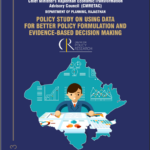
In a Glance: Budget Session 2022 (Part I)
17 March 2022
The Budget Session 2022 of Parliament commenced on 31 January 2022 and is scheduled to conclude on 8 April 2022. Below are curated highlights from the Question Hour and Zero Hour during the first part of the session (between 31 January 2022 to 11 February 2022) and a brief summary of reports related to welfare schemes.
Highlights from Question Hour & Zero Hour
Women & Child Development
- As on 30 June 2021, the Anganwadi Services Scheme was being implemented through 13,89,110 operational Anganwadi Centres and 7,075 projects covering 9.06 crore beneficiaries across the country.
- Written consent and the husband’s Aadhaar is no longer a mandatory criteria under the modified guidelines of the Pradhan Mantri Matru Vandana Yojana (PMMVY). This has been done in order to facilitate the inclusion of single and abandoned mothers.
- Under the POSHAN Abhiyan’s community mobilisation, behavioural change and Jan Andolan components, 4 Poshan Maahs (in September 2021) and 3 Poshan Pakhwadas (in March 2021) were organised. To strengthen and promote community engagement through events like Annaprashan Diwas, Suposhan Diwas and Godh Bharai, around 3.70 crore Community Based Events (CBEs) have been conducted since the launch of POSHAN Abhiyan. (Download our latest briefs on PM POSHAN, and Saksham Anganwadi and POSHAN 2.0 to know the status and progress of the schemes.)
Education
- The total expenditure by the Union Government on education as a percentage of Gross Domestic Product (GDP) has remained around 1% in the past five years.
- The Union government has requested state governments and Union Territories (UTs) to explore the prospect of introducing millets under the PM POSHAN Scheme, preferably in districts where millets are a part of cultural food practices.
Nutrition & Food
- Under the Pradhan Mantri Garib Kalyan Anna Yojana (PMGKAY), allocations of additional 5 kgs foodgrains per person per month were made free-of-cost for around 80 crore beneficiaries of all 36 states and UTs covered under the National Food Security Act (NFSA) for a period of 8 months i.e April-November 2020. This was similarly implemented during the period May-November 2021. The scheme was extended for a period of four months i.e. from December 2021 till March 2022. The financial implication under the scheme is estimated to be about ₹2.60 lakh crore. The scheme was launched during the COVID-19 pandemic, on 26 March 2020, as a food security scheme. (Download our latest brief on the Food Subsidy and NFSA to know the status and progress of the scheme.)
Labour & Employment
- As on 30 January 2022, more than 24.54 crore unorganised workers have been registered on the eShram portal, which is a National Database of Unorganised Workers. Female unorganised workers constitute 52.96 per cent of the total registration. Based on self-declarations, the figures of urban and rural workers were 1.9 crore and 22.6 crore respectively. The main objectives of the eShram portal is to create a national database of unorganised workers seeded with Aadhaar and to facilitate delivery of social security and welfare schemes.
- As per surveys conducted by the Ministry of Social Justice & Empowerment, during 2013 and 2018, 58,098 eligible manual scavengers were identified and paid One-time Cash Assistance of ₹40,000 under the Self-Employment Scheme for Rehabilitation of Manual Scavengers (SRMS).
Others
- State-wise per capita income, measured in terms of per capita Net State Domestic Product (NSDP), ranged from ₹46,292 in Bihar to ₹4,55,654 in Goa at current prices and ₹31,017 in Bihar to ₹3,07,108 in Goa at constant (2011-12) prices for the financial year 2020-21.
Highlights from Reports tabled in the Parliament
- The Standing Committee on Energy presented its 21st report titled ‘Financial Constraints in Renewable Energy Sector’.
- The Standing Committee on Education, Women, Children, Youth and Sports presented an ‘Action Taken Report on Issues Related to Safety of Women’.
The Committee highlighted the under-utilisation of Nirbhaya Fund, which continues to be a cause for concern. The Nirbhaya Fund contributes to 32 different projects and schemes across the country crucial for enhancing the safety of women.
At present, out of the allocated funds of ₹9,549 crore, only ₹4,241 crore funds have been released, and further, only ₹2,989 crore funds have been utilised. The states have not yet utilised the total funds allocated under the One Stop Centres (OSC) and Women Helpline (WHL) schemes, with only 20 per cent to 30 per cent of the funds having been utilised by the majority of the states.
- The Standing Committee on Rural Development and Panchayati Raj presented its report titled ‘Critical Evaluation Of Mahatma Gandhi National Rural Employment Guarantee Act (MGNREGA)’.
The Committee noted an increase in budgetary demand and the number of days of work sought under MGNREGA. In view of the changing times and emerging challenges, particularly because of the COVID-19 pandemic, the committee has recommended a complete revamp of the scheme. The Committee recommended increasing the number of guaranteed working days from 100 days to 150 days under MGNREGA. Other recommendations are:
-
- Budgetary allocations to the scheme should be undertaken in a more “pragmatic manner” to ensure seamless flow of funds for wages, material share, etc. and to prevent dearth of funds during mid-year.
- The Ministry of Rural Development (MoRD) should increase the wage rates under the scheme through linkage with an appropriate inflationary index.
- MoRD should look into the disparity of wages among states/Union Territories and formulate a mechanism for notifying a unified wage rate across the country.
- Social Audit Reports of Gram Panchayats should be timely placed in the public domain immediately after the audit exercise is over. (Download our latest brief on the MGNREGS to know the status and progress of the scheme.)
- Parliamentary Standing Committee on Home Affairs tabled a report titled ‘Police – Training, Modernization, and Reforms‘.
Both Houses of Parliament were adjourned for recess on 11 February 2022, to reassemble on 14 March 2022.





